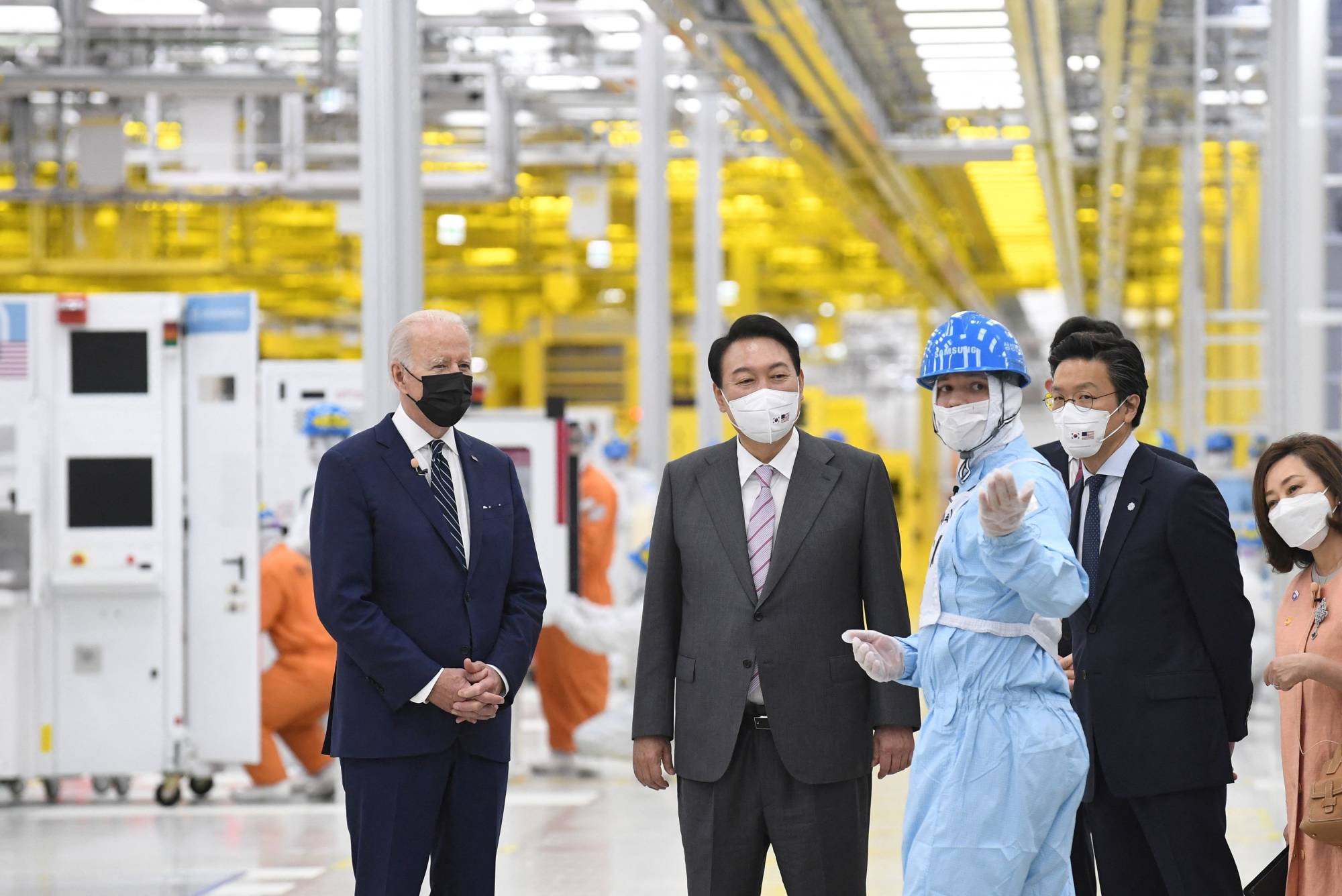Joe Biden talked at length as a presidential candidate about the need to focus on China’s rising global power. Yet 17 months after taking office, Asian leaders are still waiting for details on a strategy for more U.S. economic engagement in the region.
Before Biden touched down in South Korea on Friday, many officials in the region struggled to understand the Indo-Pacific Economic Framework — the main policy initiative he plans to unveil on the five-day trip. The U.S. ambassador to Japan, Rahm Emanuel, said this week that some governments were asking "What is it we’re signing up to?”
While much of the framework remains vague, one thing is clear: It won’t provide lower tariffs to the U.S. market, which is one of the main carrots for many nations to agree to higher labor and environmental standards that American lawmakers want in any pact. That’s particularly the case if they risk upsetting China by joining a framework seen as countering Beijing.



